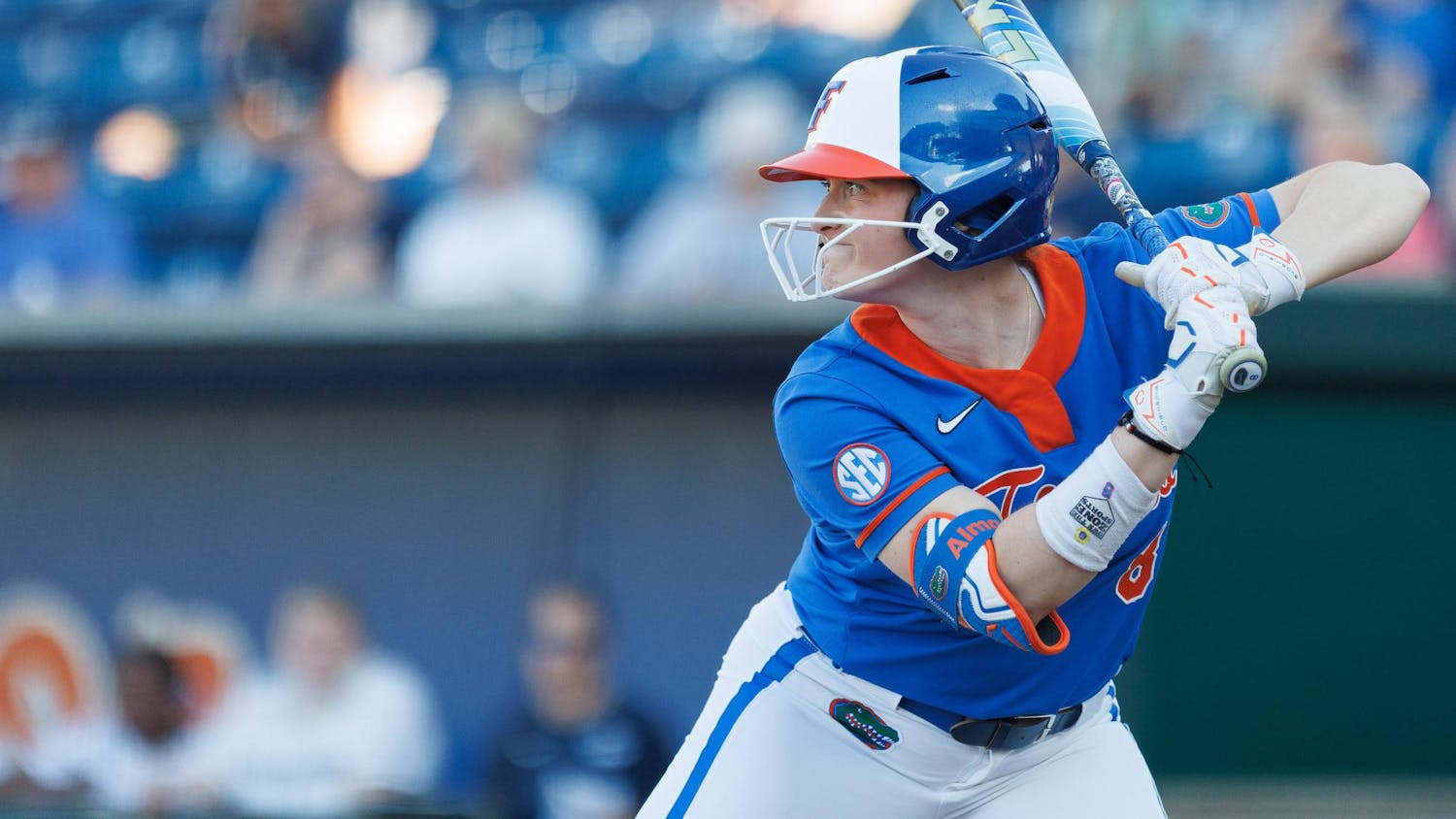UF Planned Parenthood Generation Action, College Democrats, Young Democratic Socialists of America and other student organizations are getting involved with the statewide initiative to get abortion on the ballot for the 2024 election cycle.
The campaign behind the initiative is Floridians Protecting Freedom, a coalition of citizens and organizations across the state, including the American Civil Liberties Union of Florida, Planned Parenthood, Florida Rising and Florida Women’s Freedom Coalition. The initiative, titled “Amendment to Limit Government Interference with Abortion,” proposes an amendment to the constitution that would be voted on during the November 2024 election. If passed, the amendment would enshrine protections for abortion access in the state.
The amendment’s text is brief and direct in its purpose:
“No law shall prohibit, penalize, delay, or restrict abortion before viability or when necessary to protect the patient’s health, as determined by the patient’s healthcare provider. This amendment does not change the Legislature’s constitutional authority to require notification to a parent or guardian before a minor has an abortion.”
Why Floridians are taking action
The campaign was launched in May, soon after Gov. Ron DeSantis signed a six-week abortion ban into law, which is, at the time of publication, awaiting a decision from the Florida Supreme Court’s ruling on the 15-week ban. The six-week ban sparked strong reactions from activists, lawmakers and concerned Floridians. In a public statement, Congressman Maxwell Frost, U.S. Representative for Florida’s 10th congressional district, spoke in opposition to both the 15- and six-week bans, which he said are “radical attempts to control Floridian’s bodies and healthcare decisions.” The six-week ban is an escalation in the series of legislative battles concerning reproductive rights that have been increasing at the state level and the national level since the fall of Roe v. Wade, which rolled back federal protections for abortions.
With only two other states in the nation with a six-week ban in place, putting this ban into effect would make Florida part of the country’s most aggressive in limiting reproductive health care. The ban prohibits abortions after six weeks from the last menstrual period and offers limited exceptions for victims of rape, human trafficking, incest or instances of fetal abnormality.
There are also additional requirements, including that Florida patients attend two in-person appointments, at least 24 hours apart. With considerations to the limited availability of appointments, and the complications for patients to take time off work or find transportation to the clinic, restrictions like this 24-hour window only add further barriers for Floridians seeking abortion care.
Critics of the ban argue this is too little time for some to even recognize that they are pregnant, much less with all the restrictions and barriers to access that the Florida legislature has created.
A group of abortion providers, including Planned Parenthood, are currently challenging the constitutionality of the 15-week ban through the state Supreme Court. The group argues that the ban violates the right to privacy outlined in Article 1, Section 23 of the Florida Constitution, a clause voters passed in 1980. The legal precedent of this case is a 1989 Florida Supreme Court ruling where the Court determined that the privacy clause does protect abortion.
Oral arguments for the hearing began Sept. 8, and there is no set date for decisions.
The 15-week ban is currently in effect as it awaits a ruling. If the Supreme Court decides to uphold the ban, then the six-week ban would also take effect.
As the state legislature has rolled back abortion rights, and the path through the Supreme Court is unclear, Floridians are now using a different avenue, through the ballot initiative, to protect abortion.
What it takes to get abortion on the ballot
According to the Florida Constitution, amendment proposals must collect as many signatures as 8% of the voting population in the last Presidential election, meaning the Floridians Protecting Freedom campaign must accumulate a minimum of 891,523 petitions signed by Floridian voters, with 8% of those voters being from half of Florida’s congressional districts. To account for those petitions that may be rejected due to mistakes in the form or invalid signatures, the campaign has set a goal of approximately one million petitions to be collected by the Feb. 1 deadline.
In August, the campaign announced that it had collected over 600,000 petitions, meaning it has collected more than half of its goal in just three months of the campaign having been launched.
More recently, the campaign validated enough petitions with the state, over 25% of the required signatures, to trigger a review from the state Supreme Court on the amendment's language.
This is a significant milestone for the campaign and puts the initiative closer to reaching the 2024 ballot.
Organizing at the Swamp
While the campaign has hired petition collectors to help with its goal, a large portion of its work has been fulfilled by volunteers, reporting 117,502 petitions being submitted or directly mailed by Floridian voters. In Gainesville, student and community organizations have taken to the streets to get involved.
UF Generation Action, the student affiliate organization of Planned Parenthood that extends its advocacy works on college campuses, has aligned much of its resources this semester on promoting the campaign. Tabling on campus to speak with students about the petition, hosting special events both on campus and throughout Gainesville to platform the issue and facilitating online discussions are some ways that Generation Action and other student organizations have been mobilizing to get abortion on the ballot.
Student organizers have expressed how this initiative has allowed Floridians to make healthcare decisions on their own account and presents a possible turning point in the state’s political landscape.
Paulina Trujillo, political director of UF Generation Action and public relations director of UF College Democrats, emphasized how “the ballot initiative serves as a beacon of hope within the whirlwind of Florida politics.” She asserted that this beacon is especially relevant with the past losses that progressives have experienced in the state and can provide optimism for reproductive organizers who feel that “we can do nothing against the machine of Florida’s Republican supermajority.”
Other states, like Kansas, have already passed a ballot initiative to protect abortion rights. Trujillo highlights this win as a reminder that this change is possible and has been done before, further accentuating the possibility of change in Florida.
Looking towards the future
As the state currently awaits a decision from the Supreme Court on the legality of the 15-week ban, there is much uncertainty about reproductive rights.
Organizers like Trujillo have remained positive and have continued focusing efforts on the ballot initiative. If the campaign succeeds, Floridians can expect to decide on this issue in November 2024.
Frequently Asked Questions on the Petition
- Who can sign the petition?
- Anyone registered to vote in Florida is eligible to sign the petition. To verify voter registration status, please refer to: https://registration.elections.myflorida.com/en/CheckVoterStatus/Index
- Where can I access the petition?
- You can print the petition through https://floridiansprotectingfreedom.com/petition/The PDF is fillable, but the signature and date signed must be handwritten.
- I don’t know my voter registration number. Can I still sign the petition?
- Yes. You can use either your voter registration or your date of birth.
- How do I submit the petition?
- You can mail the completed petition to:
- Petition Collection
Post Office Box 4068
Sarasota, FL 34230
- Or you can submit it to a local petition hub. The Civic Media Center is currently serving as one of Gainesville’s petition hubs. You may also fill out and submit the petition through volunteer collection organizations. Some UF organizations currently working on petition collection include UF Generation Action (@ppgenactionuf on Instagram), UF College Democrats (@ufcollegedemocrats on Instagram), and UF Young Democratic Socialists of America (@uf_ydsa on Instagram).
- I’ve already signed the petition, can I still sign?
- No. Petitions can only be signed once. Please call your local supervisor of elections to confirm if you have filled out a petition/your petition has been received.
- When is the deadline for collecting petitions?
- All petitions must be processed by Feb. 1, 2024. To allow sufficient time for processing and verification, petitions should be signed and submitted by the end of December 2023.
Tips for Signing the Petition
- Use only blue or black ink to sign
- A common error is that people confuse the section that says “County” with “Country”. Please fill in with the county you are registered to vote in (e.g.: Alachua County, Miami-Dade County, etc.). Do not write “USA” or “United States of America.” To verify which county you are registered to vote in, please refer to: https://registration.elections.myflorida.com/en/CheckVoterStatus/Index
- If you make a mistake, do not cross it out. Start a new petition.
- No abbreviations for the county or city. For example, do not write GNV for Gainesville.
- Write as clearly as possible. Your petition may not be counted if some information cannot be read.
Ashley Sanguino is a UF political science junior.






